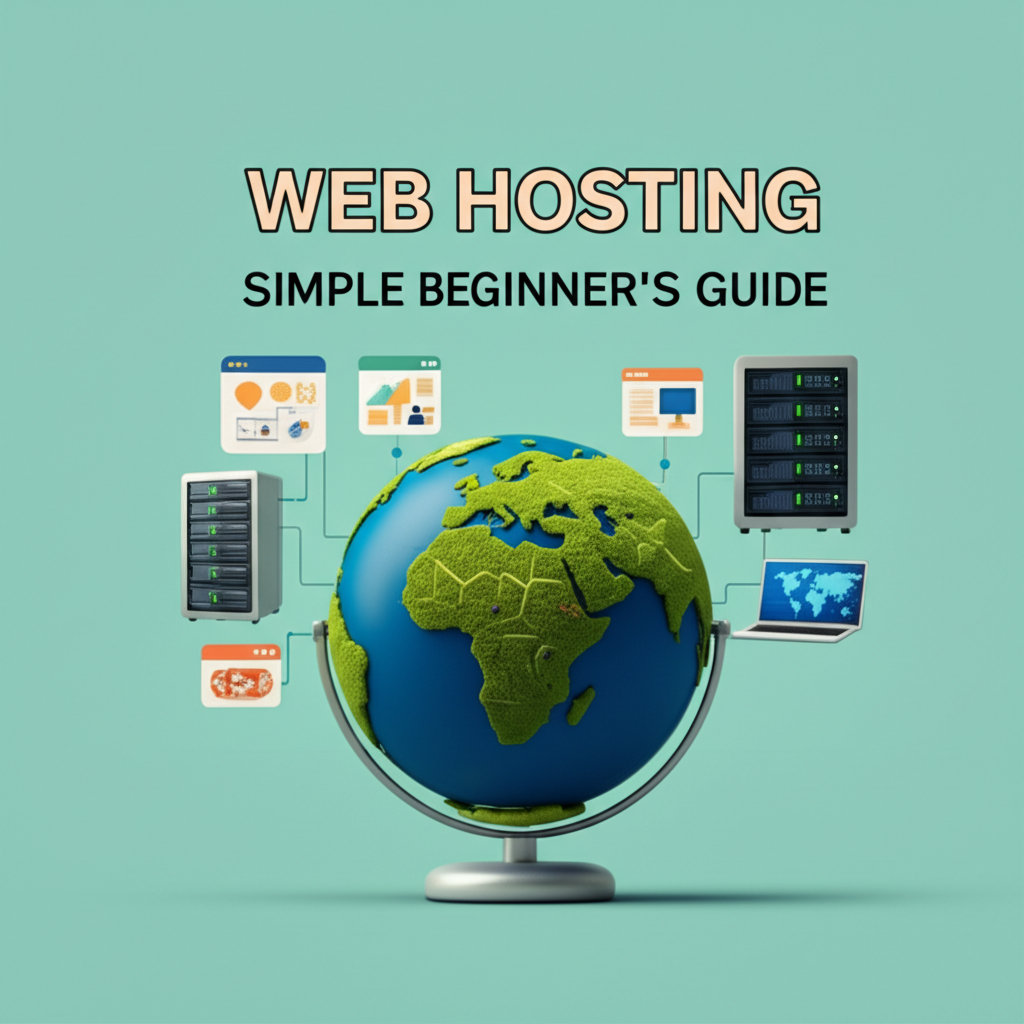- What is Web Hosting and Why Do You Need It?
- Different Types of Web Hosting Explained
- Shared Hosting:
- VPS Hosting (Virtual Private Server):
- Dedicated Hosting:
- Cloud Hosting:
- WordPress Hosting:
- Key Features to Consider When Choosing a Web Host
- Web Hosting Explained: Making the Right Choice
Web Hosting Explained: A Simple Beginner’s Guide
Web hosting is the backbone of every website you visit. Without it, your favorite blogs, online stores, and social media platforms wouldn’t exist. Essentially, web hosting provides the server space and resources needed to store and deliver your website’s files and data to users around the world. Think of it as renting a plot of land on the internet where you can build your online presence. This beginner’s guide will break down the essentials of web hosting, helping you understand the different types, key features, and factors to consider when choosing the right hosting solution for your needs.
What is Web Hosting and Why Do You Need It?

Imagine creating a stunning website, brimming with captivating content and engaging visuals. However, without web hosting, this creation would remain confined to your computer, unseen by the world. Web hosting services provide the servers – powerful computers constantly connected to the internet – that store your website’s files, making them accessible to anyone, anywhere, at any time. When someone types your website address into their browser, their computer connects to your web host’s server, which then sends them the requested files, allowing them to view your website.
Different Types of Web Hosting Explained
Choosing the right type of web hosting is crucial for your website’s performance and scalability. There are several types of web hosting, each with its own advantages and disadvantages:
Shared Hosting:
This is the most common and affordable type of hosting, ideal for beginners and small websites with moderate traffic. In shared hosting, multiple websites share the resources of a single server. This means sharing processing power, memory, and storage space. While cost-effective, shared hosting can sometimes be affected by the activities of other websites on the same server.
VPS Hosting (Virtual Private Server):
VPS hosting offers a balance between affordability and performance. While still sharing a physical server with other websites, VPS hosting utilizes virtualization technology to create isolated virtual environments. This gives each website dedicated resources and greater control over server configurations, resulting in better performance and security compared to shared hosting.
Dedicated Hosting:
With dedicated hosting, you have an entire physical server dedicated solely to your website. This provides maximum control, performance, and security but comes at a higher cost. Dedicated hosting is suitable for large websites with high traffic volumes and demanding resource requirements.
Cloud Hosting:
Cloud hosting utilizes a network of interconnected servers to host your website. This offers greater scalability and reliability as your website’s resources can be dynamically adjusted based on demand. If one server fails, another can seamlessly take over, ensuring minimal downtime. Cloud hosting is generally more expensive than shared hosting but offers greater flexibility.
WordPress Hosting:
Specifically optimized for WordPress websites, this type of hosting often includes pre-installed WordPress software, automatic updates, and enhanced security features. It simplifies the process of setting up and managing a WordPress site.
Key Features to Consider When Choosing a Web Host
Besides the type of hosting, several key features should be considered when making your decision:
Storage Space: How much space do you need to store your website’s files, images, and databases?
Bandwidth: This refers to the amount of data that can be transferred between your server and visitors’ browsers. Higher bandwidth is necessary for websites with high traffic and large file sizes.
Uptime Guarantee: Look for a web host that guarantees a high uptime percentage (e.g., 99.9%), ensuring your website remains accessible almost all the time.
Customer Support: Reliable and responsive customer support is crucial for troubleshooting any technical issues that may arise.
Security Features: Choose a web host that offers robust security measures, such as firewalls, malware scanning, and SSL certificates, to protect your website from cyber threats.
Scalability: Consider whether the hosting plan allows you to easily upgrade your resources as your website grows.
Web Hosting Explained: Making the Right Choice
Choosing the right web hosting plan can seem daunting, but by understanding the different types of hosting and key features, you can make an informed decision that meets your website’s needs and budget. Start by assessing your website’s requirements: expected traffic, storage needs, and technical expertise. For beginners and small websites, shared or WordPress hosting is often a good starting point. As your website grows, you can then upgrade to a more robust solution like VPS or cloud hosting. Don’t hesitate to contact web hosting providers directly to discuss your specific requirements and ask questions. With careful consideration and a little research, you can find the perfect web hosting solution to power your online presence.











Leave a Reply